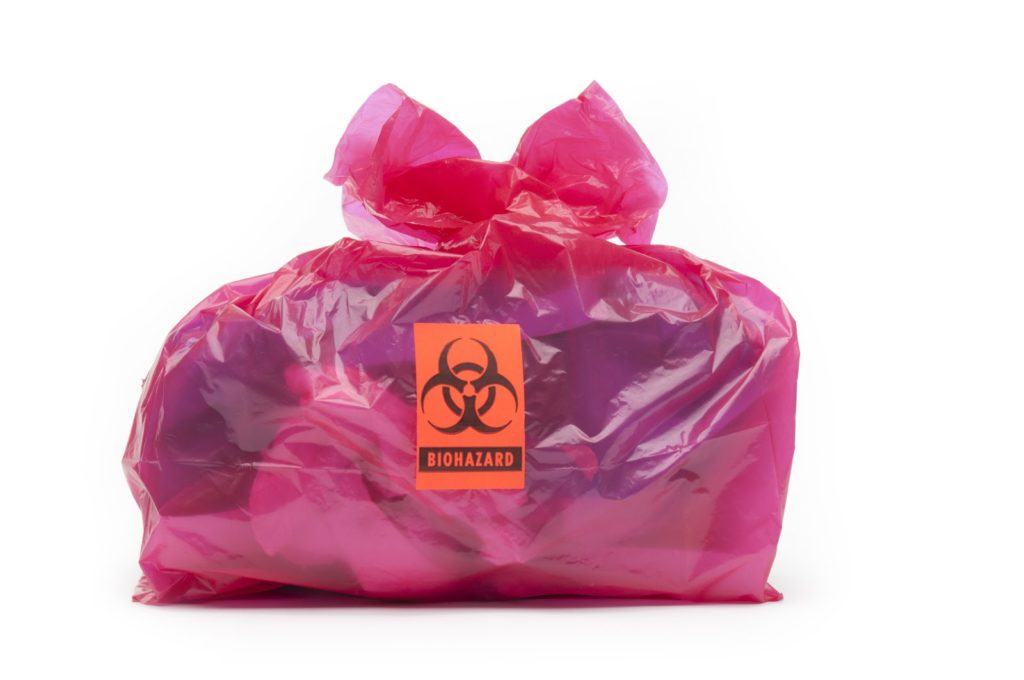Expertise Unleashed: Mastering the Art of Medical Waste Removal for Health Facilities
Expertise Unleashed: Mastering the Art of Medical Waste Removal for Health Facilities
Blog Article
Eco-Friendly Garbage Disposal Solutions for a Sustainable Future
Green waste disposal services are not simple options however imperatives for a lasting future. From waste partition at the source to energy healing from waste, a wide variety of methods exist to resolve the challenges of waste disposal properly.

Waste Partition at Resource
When implementing waste segregation at source, people can considerably add to a lot more reliable recycling and waste monitoring systems. By dividing different sorts of waste such as paper, plastic, glass, and organic materials right from the point of disposal, the procedure of recycling ends up being streamlined, minimizing contamination and boosting the worth of recyclable materials. This technique not just preserves sources yet likewise reduces the amount of waste destined for landfills or incineration.
Proper waste partition at the source is vital for promoting a circular economy where products are recycled, reused, or composted as opposed to being discarded as trash. It also aids in the efficient collection and handling of recyclables by waste monitoring centers - medical waste disposal. Areas that embrace waste segregation at the resource usually experience price savings in waste management and see a decrease in ecological contamination
Individuals play a crucial duty in the success of waste partition campaigns by bearing in mind exactly how they deal with their waste - click here. Education and learning and awareness projects can further motivate the adoption of these practices, leading to an extra environmentally friendly and lasting technique to garbage disposal
Composting and Organic Waste Administration
An efficient technique for handling organic waste and promoting sustainability is through composting. Composting is an all-natural process that breaks down organic materials like food scraps, backyard waste, and paper right into nutrient-rich soil modifications. This process not only diverts organic waste from land fills yet also generates a beneficial item that can enhance soil, enhance plant growth, and reduce the demand for chemical plant foods.

Applying composting programs at the household, neighborhood, and metropolitan degrees can substantially reduce the amount of organic waste that winds up in land fills. Educational campaigns on composting best practices and the advantages of organic waste diversion can further encourage extensive adoption of this green waste management service. click here. Inevitably, composting provides a sustainable and sensible approach to handling natural waste while adding to a greener and even more lasting future
Recycling and Upcycling Initiatives
One secret facet of advertising eco-friendly waste administration methods is via the application of reusing and upcycling campaigns. Reusing entails processing used materials into new products to stop waste of possibly helpful resources. This process assists in minimizing power usage, air contamination, and water pollution. Furthermore, recycling aids in the conservation of raw materials and minimizes the demand for standard garbage disposal approaches like landfilling and incineration.
Upcycling, on the other hand, is the creative reuse of thrown out products or products to produce products of greater high quality or check value than the original. By upcycling, less waste is sent out to garbage dumps, and the demand for new raw products reduces. This lasting technique promotes development and encourages people to see waste as a beneficial source.
Both recycling and upcycling campaigns play a critical function in advertising a circular economic situation and lowering the environmental influence of waste disposal. click here. By including these practices right into everyday life, people can add to a more lasting future for generations ahead
Energy Recovery From Waste

There are several technologies made use of for energy healing from waste, including incineration, gasification, and anaerobic digestion. Anaerobic food digestion breaks down natural waste to create biogas, which can be utilized for heat or electricity manufacturing.

Community-Based Waste Reduction Programs
Utilizing community engagement and participation is crucial in executing efficient waste decrease programs that match power recovery campaigns in sustainable waste administration practices. Community-based waste decrease programs involve joint initiatives between citizens, local organizations, and authorities to decrease waste generation and improve recycling prices. These programs often include instructional projects to raise understanding about liable waste disposal practices, the value of recycling, and the benefits of lowering waste.
One usual method is the establishment of area recycling facilities where residents can hand over recyclable materials conveniently. These facilities promote recycling by making it quickly obtainable and providing resources for appropriate waste sorting. Furthermore, area clean-up occasions and area recycling drives aid instill a sense of environmental obligation and unity among citizens.
Additionally, community-based waste reduction programs can consist of efforts such as composting workshops, recyclable product exchanges, and the promo of lasting methods in neighborhood companies - medical waste disposal. By entailing the area in waste decrease initiatives, these programs develop a sense of ownership and collective responsibility towards building a more lasting future
Verdict
To conclude, executing environmentally friendly waste disposal solutions such as waste partition, composting, reusing, power recuperation, and community-based programs is critical for a sustainable future. By embracing these techniques, we can reduce the environmental effect of waste generation and promote a round economic situation. It is imperative that governments, individuals, and organizations work together to focus on sustainable waste monitoring methods to protect our earth for future generations.
From waste segregation at the source to energy recuperation from waste, a huge selection of strategies exist to resolve the difficulties of waste disposal sensibly. Educational initiatives on composting ideal methods and the advantages of organic waste diversion can better encourage prevalent adoption of this eco-friendly waste management option.Successfully utilizing energy from waste products is an essential strategy in sustainable waste monitoring practices.Taking advantage of area interaction and engagement is important in carrying out effective waste reduction programs that match power recovery efforts in lasting waste monitoring practices.In final thought, applying environmentally friendly waste disposal solutions such as waste segregation, composting, reusing, power recovery, and community-based programs is essential for a lasting future.
Report this page